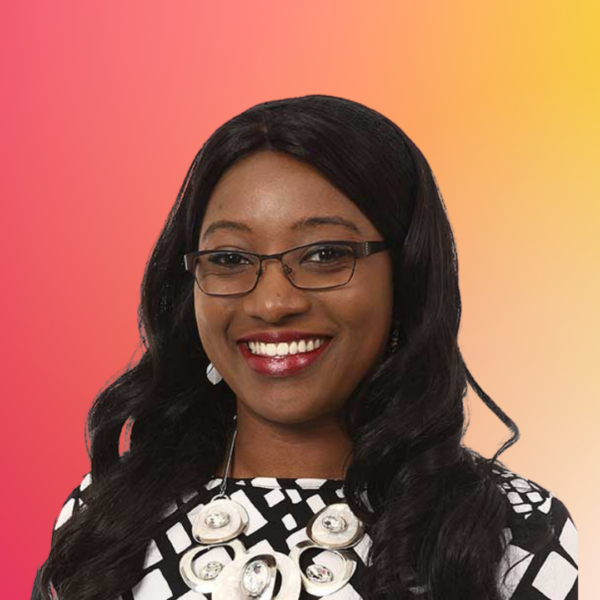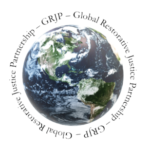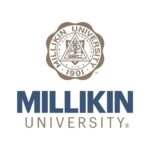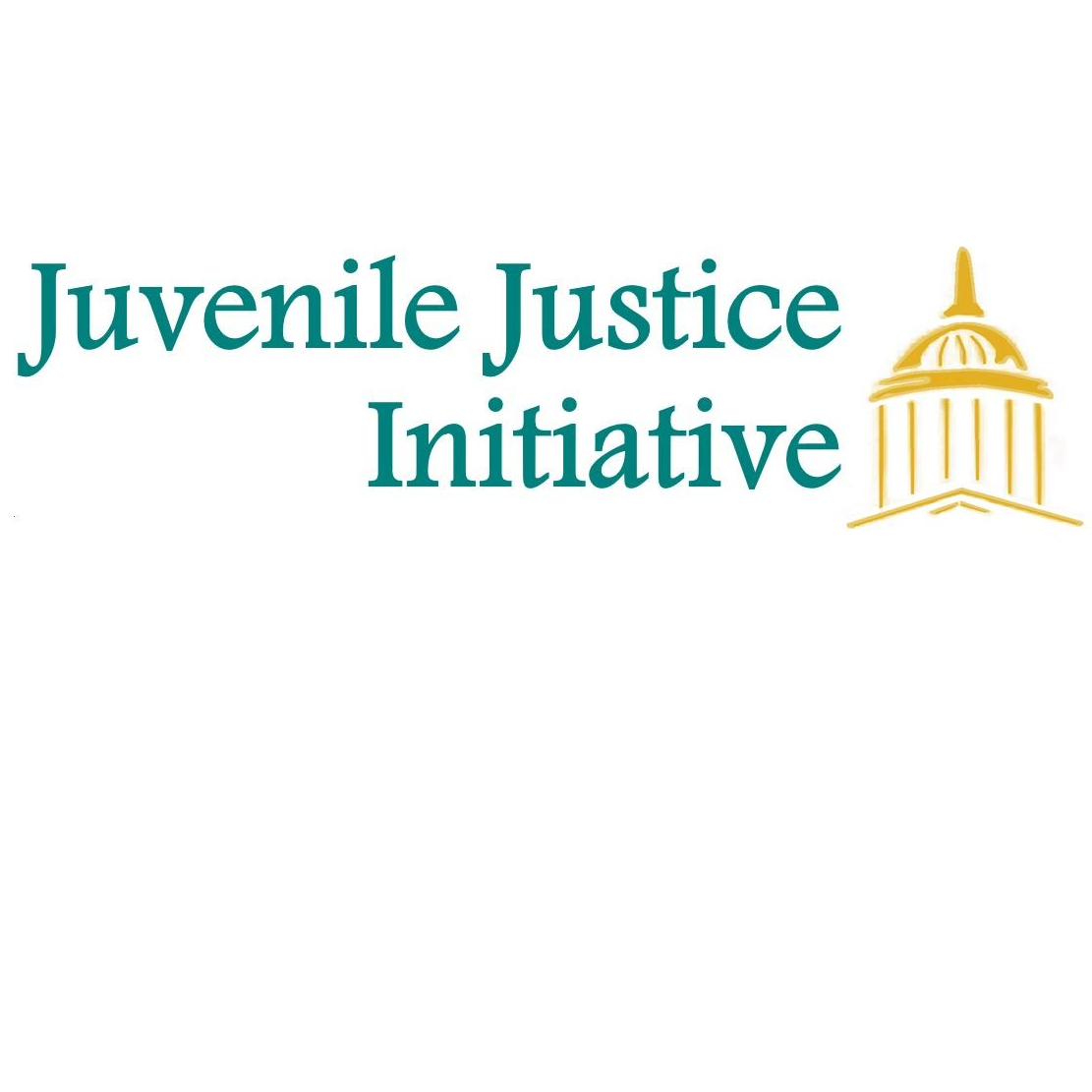Three Questions: A Q&A with Keyria Rodgers, Founder, Global Restorative Justice Partnership; Director, Millikin University’s Criminal Justice Department

The Organization
Global Restorative Justice Partnership
(fiscal agent, Juvenile Justice Initiative)
The Project
Global Restorative Justice Partnership
Youth and young adults in Decatur, Illinois, need viable solutions for reducing violence, promoting healing, fostering healthy restorative dialogue, and promoting community reentry support to decrease court involvement and reduce mass incarceration. This new RJ Hub will assist in research, development, training, and policy advocacy in Decatur.
Q&A with Keyria Rodgers
Question 1: With regards to the criminal legal system, when you imagine a just future, what does it look like?
Keyria Rodgers: A just future to me is one where we are given the opportunity to focus on equitable approaches to everything and really understand what that means. So, in terms of what is equitable and what is not, people often confuse that with equality. However, an equitable approach is where we do take a moment to understand what our individual communities need and how we’d be able to get them the resources (or at least be able to supply the resources) from positions of administration and leadership. So, the just future means that we need to analyze our community data, analyze what people are asking for, and develop a better understanding of what’s needed. It’s the recycled ideas that I tend to shy away from (because we’ve tried that stuff before). We need to understand that this does not mean that we give it a different name and give it a different colored bow. It means that we need to try something different. So, it’s just having the opportunity to understand where we’ve been and where we need to go while keeping equitability in mind.
Q2: How do you see harnessing the arts and humanities as important strategies in working toward that future?
KR: It’s amazing. This is something that’s been super cool. Let me just start there. Because harnessing the arts is actually a way that I’ve been able to connect with a lot of people in my area. I’m an artist too, so I get it. But I’ve never had the time to continue doing all the art I used to do. So, I have been connecting with artists all over the world. We talk about what this means in terms of how they express themselves, how they use their art to create the words and feelings that words themselves can’t create. (Someone actually said that to me, I thought it was great.) Art makes us think and reflect! When we look at certain pictures – for instance, when you look at a picture of a man, who is literally in prison shackles, and his skin is being torn from his body – it’s this kind of art that creates the space for the conversation that follows. This is why harnessing the arts means so much to me on a personal level – because it sparks not only future conversation, but it’s a way for us to reflect on where we’ve been and where we need to go. It’s a way that certain people and certain communities illustrate a phrase such as “we’ve been crying for help all along.” Art is also a way that young people have been saying, “nobody’s listening to me. I’ve been screaming all this time!” It’s a way that women who’ve been abused, and in harmful situations, and even their children, can express what they cannot express with words.
So that is why harnessing the arts and getting people to appreciate what the arts and culture can do for us is so important, no matter what field or profession we’re in. It’s basically having an understanding of what we’re doing, what we’re trying to say, why we’re doing this. Again, it just creates that future conversation that perhaps we’ve been afraid to have, or maybe the space was never provided to have face to face. You will find that lots of these art pieces that we use in restorative justice and art therapy settings, this is exactly what is meant to be accomplished. We aim to start the conversation in ways that simply hadn’t been done before.
“This is why harnessing the arts means so much to me on a personal level – because it sparks not only future conversation, but it’s a way for us to reflect on where we’ve been and where we need to go.”
Q3: What is the most important thing people should know about your work?
KR: So, one of the most important things about the work that I do specifically, it’s about providing a space, a platform, a voice, for people who have never had that. People who maybe had it once upon a time, but somehow it’s been lost along the way. Changes happen, the dynamics of one’s livelihood also change. As a professor I speak with students every day – even throughout the summer – and you’d be surprised! Even in the role that I play, you’d think it’d be about mentorship, you’d think that I’d be a counselor, but honestly, it’s about listening to people when they speak. It’s about making sure that they can see things in a non-hierarchical way. When we have these conversations with young people, we must understand as mentors that life has happened to a lot of people in ways that they couldn’t understand or predict – and we’re not okay. They may bring things to the table that we have never seen. It’s our job to plant the seeds, it’ll be someone else’s job to water the seeds later on, but before you know it, you start to see these sprouts. When I meet young people in the justice system, I treat them like humans – and they never forget me because of this. They aren’t cases. They are people! The way we interact with people can open the door to so many positive (or negative) emotions.
You know, this is what my experience has been like. I’ve always been surrounded by mentors who saw potential in me that I didn’t even know was there. And they would often see it, and I’d look at them and say, “Yeah, no. you’re crazy – there’s no way I could ever do that,” clearly doubting myself. Now I see what my mentors have always seen. POTENTIAL! LIFE! SEEDS! It’s a space in which I am incredibly humbled to be in and I would have it no other way.
Q: Anything else you’d like to add?
KR: We recently had a peace summit, here in Decatur – and it was the first one that I’ve been a part of. This summit included the entire Decatur community that had the time to take off from their schedules to be there. We thought there would be 25 or 30 people, we had over 115 people there. We had men, women, children, teenagers, young adults – everybody! Every nationality you can think of, they were there. Our elected officials were there. I had to give a shout out to my Millikin colleagues because they were there too! I was shocked to see as many people as I did. But they came, and they owned that space. This is not a project that is going to be run by one or two people. This is a project the community is going to own. This is theirs. That was the message of this entire day. It was streamed on Facebook live, we shared it on my page. We were able to create new partnerships that very day. From the first summit, we came away with the top three things we wanted to focus on, and we’re going to create these opportunities over the coming 12 months.
Q: Do you have any recommended reading you would like to share?
KR: I come from the area of diversion and trying to develop a better understanding of what diversion looks like. There’s an article by Jeffrey Butts, 2016, Critical Diversion policy paper. That one, for me, began to change my mindset about everything, when it comes to juvenile justice, and restorative justice, and things like that. Basically, he was saying that a lot of the programming that we are used to in the criminal justice system, has really been for the benefit of the people running the system. Not really for the people going through the program. This paper shook the foundation for me.
Another paper that my colleagues and I wrote in 2018 was an evaluation of teen courts. Not individual evaluations, but speaking to what we thought restorative justice was back in the day and how we learned that it is not what restorative justice actually is. In a way, people throw out the term restorative justice so much, with very little understanding of what it actually means, how it should be applied, and what it means for the individual person. You could say that there are programs that, in some ways, are restorative, but they still have a strong punitive feel to them. The name of the paper is “What is Restorative About Teen Court?” I was able to find colleagues all over the world who learned and believed the same thing I was just now learning. Lorenn Walker, Mark Umbreit, and I are from various parts of the US, and they understood what I was asking/talking about when I asked them to verify that I wasn’t losing my mind. I was questioning the system that I grew up working in – and it felt like I needed to continue doing so.
Resources
 www.GRJP.org
www.GRJP.org
The Global Restorative Justice Partnerships website will offer resources, publications and details for various programs and partners around the world, focusing on restorative justice.
 Millikin University, Criminal Justice Dept.
Millikin University, Criminal Justice Dept.

Juvenile Justice Initiative
The Illinois Humanities Spotlight
On a monthly basis, Illinois Humanities highlights the work of our Envisioning Justice program partners through our “Grantee Spotlight.” This shines a light on our grantee partner’s work, offering details about the organization and the funded project, as well as a Q&A with a team member at the organization. Read more
About Envisioning Justice
Envisioning Justice leverages the arts and humanities to envision alternatives to the enduring injustice of mass incarceration. This Illinois Humanities initiative works with communities and people impacted by mass incarceration to spark conversations and illuminate community-based strategies that address our racist and unjust criminal legal system.
About Illinois Humanities
Illinois Humanities, the Illinois affiliate of the National Endowment for the Humanities, is a statewide nonprofit organization that activates the humanities through free public programs, grants, and educational opportunities that foster reflection, spark conversation, build community and strengthen civic engagement. We provide free, high-quality humanities experiences throughout Illinois, particularly for communities of color, individuals living on low incomes, counties and towns in rural areas, small arts and cultural organizations, and communities highly impacted by mass incarceration. Founded in 1974, Illinois Humanities is supported by state, federal, and private funds.